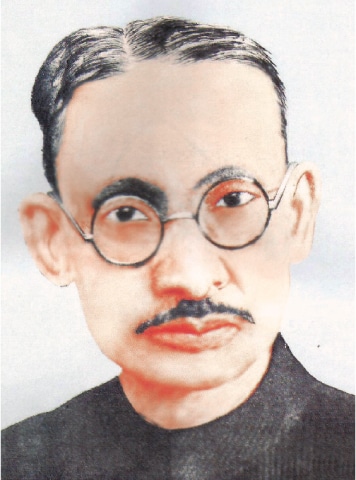
TODAY’S writers and poets of Urdu often lament that they are rarely paid any royalties, if at all, and everyone in book trade and publishing business gets paid except those without whom the entire publishing industry would come to a grinding halt: the very persons who create the material to be published.
Proofreaders and printing machine workers, too, are paid, writers of Urdu grumble, and the labourer who loads and unloads books is also paid, albeit meagrely, but writers and poets of Urdu are not paid even meagrely. One has to agree with them as except for a few writers of Urdu who are really popular and whose books are published by some prestigious publishers, writers are left high and dry. Many writers have to implore publishers to get their works published. Some new writers have to foot the bill for all printing expenses while the so-called publishers think they are doing a favour to these new writers by publishing their book and “charging only the amount that covers the cost”.
Similarly, few Urdu magazines pay any remuneration to the contributors even today, but there was an editor and publisher who paid writers for their contributions some 100 years ago and he was among the first few ones to do so. His name was Munshi Daya Narain Nigam. Nigam was an essay writer and journalist of Urdu. What Nigam is known for and still remembered today is his Urdu literary magazine monthly Zamana, which is considered one of the most prestigious magazines in the history of Urdu’s literary journalism.
Among the contributors of Zamana were some of the most renowned writers and poets of Urdu, including Premchand and Allama Iqbal, to name but a few. Some of Premchand’s earliest writings, considered among one of the earliest of Urdu short stories, were published in Zamana. Iqbal’s poem ‘Hamara des’, which begins with the famous line ‘Saare jahan se achcha Hindustan hamara’ was first published in Zamana and was later included, with certain changes, in Baange Dara under the title ‘Tarana-i-Hindi’.
Monthly Zamana was launched by Munshi Shiv Brat Lal Vermen in February 1903 from Bareilly and later on it was moved to Kanpur. In November 1903, Vermen offered Nigam to take over as editor, an offer he gladly accepted and edited the journal for the rest of his life. When Nigam died in 1942, he had been editor of Zamana for 39 years. After his death, the magazine was edited by his son Siri Narain Nigam, but it was closed down in 1949. Nigam had also launched Azad from Kanpur. Azad began publication from Dec 12, 1912, and became a popular Urdu political weekly. It also proved to be a financial success and support for Zamana, which had been incurring losses. But at the end of the First World War, Azad had to be closed down due to recession, though Nigam kept Zamana going somehow.
Daya Narain Nigam was born in Kanpur on March 22, 1882. As was in vogue in those days, Nigam was taught Persian and Urdu at home first. After early schooling at Kanpur, he did his BA from Kanpur’s Christchurch College in 1903 and taught Urdu and Persian at the same college for a while. His grandfather was a renowned lawyer and Nigam’s family wanted him to become a lawyer. But he had a knack for journalism, so in November 1903 began a journey that lasted for about 39 years.
Zamana played a vital role not only in the history of Urdu literature but in the political and social arena as well since it published essays on art, politics and social issues, too. Daya Narain Nigam was a kind-hearted person who loved humanity and believed in unity of all human beings regardless of their religion or race. He supported the idea of Hindu-Muslim unity and was also in favour of India’s freedom.
Daya Narain Nigam died in Kanpur on Nov 2, 1942. In 1982, Nigam’s centennial was commemorated and a commemorative volume was published. Naya Daur, an Urdu literary magazine published by the Indian government, published a special issue on Nigam to coincide on the occasion. As Nigam was a prolific letter writer and wrote some moving letters, 89 of his letters addressed to literary figures were collected and published by Muhammad Ayoob Vaaqif. Many issues of Zamana were reproduced by Abid Raza Baidaar who at that time was at the helm of affairs at Khuda Bakhsh Public Library, Patna.
Looking at people like Daya Narain Nigam, their works and the literary atmosphere in India till late 1980s and early 1990s — when Urdu was very much a part of India’s cultural environment and even Hindus wrote and read Urdu — who could believe today that a headmaster in Indian state of Uttar Pradesh was suspended for asking the students to recite Allama Iqbal’s poem ‘Lab pe aati hai dua...’?
But one still feels that neither the history of Urdu’s literary journalism nor Urdu literature can be considered complete without taking into account the services rendered for it by Daya Narain Nigam and thousands others like him.
Published in Dawn, October 28th, 2019











































Dear visitor, the comments section is undergoing an overhaul and will return soon.